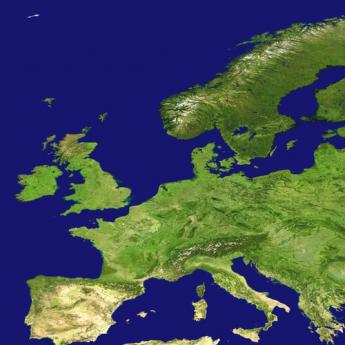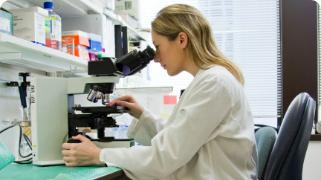
European Education and Research Projects
Sorbonne University is a major player in European higher education and research. It actively participates in European research, innovation and education programs and contributes to their development. As a long-standing member of the League of European Research Universities (LERU) and the European University Association (EUA), it contributes to debates on the impact and influence of European universities and helps to strengthen multilateral cooperation between them.
Free circulation of knowledge
Thanks to the Erasmus+ program, students and academic researchers benefit from mobility opportunities in Europe and beyond. Through the Erasmus + strategic partnerships, knowledge alliances, and capacity development actions, Sorbonne University is consolidating its partnerships with other international universities, promoting pedagogical innovation, exchange of best practices and mutual learning, as well as strengthening links with businesses.
As a founding member of the 4EU+ Alliance, the University is fully engaged in the European space. Through its dynamic mobility policy and the development of its partnerships, Sorbonne University affirms its role in disseminating knowledge to all sectors and stakeholders of the society, from citizens to politicians, in a spirit of open science.


Research and innovation at a European level
The Sorbonne University community’s participation has excellent success rates in European research and innovation programs, and thus contributes to meeting global challenges with its European partners. The University provides researchers with assistance in setting up their projects including legal and financial support in responding to calls for tenders.
The community maximizes the opportunity of collaborative research by coordinating or participating in a number of European projects, and the success of our teams demonstrates their international engagement. In addition, Sorbonne academic researchers and partner researchers are notable in their success in the ERC, a highly competitive European program that awards individual grants for fundamental research.
Developing the knowledge triangle in Europe
Sorbonne University actively participates in three Knowledge and Innovation Communities (KICs), selected by the European Institute of Innovation and Technology (EIT) in the fields of digital, climate, health and ageing. Sorbonne University also hosts the French node of EIT-Health. KICs unite innovation, higher education and research to strengthen the societal and economic impact of their members.


A pioneering marine infrastructure network
The University coordinates the EMBRC (European Marine Biological Resource Centre)—a European infrastructure network of nearly 20 marine biology structures and stations in nine countries. The EMBRC was awarded the "ESFRI landmark" status in 2018, confirming its excellence and international reach. Sorbonne University is the first French university to develop a European infrastructure.
Sorbonne University’s dedication to European projects – Key Figures:
Horizon 2020
- 146 European projects funded
- 65 collaborative research and innovation projects
- 82 ongoing ERC projects, 20 new ERCs in 2019
- 55 projects Marie Skłodowska-Curie Actions
For a cumulative total of more than 80 million euros in funding for the Sorbonne University teams – 22 million of which was awarded in 2019.
Erasmus +
19 ongoing European projects received more than 900,000 euros in funding to Sorbonne University teams.

Ongoing project coordination: Horizon 2020
PhoQuS is an H2020 project in Future and Emerging Technologies in Physics, "Photons for Quantum Simulation." The objective of the project is to develop a new quantum simulation platform based on photonic quantum fluids.
Animatas is an H2020 project with the Marie Skłodowska-Curie Innovative Training Networks and the ISIR laboratory. This project seeks to understand how robots with social skills could be used in schools to assist teaching teams.
ERCcOMICS is an H2020 Project ERC and a collaboration between ERC award-winning researchers and artists working on the link between comic strips and science.
Waves is an H2020 Project with the Marie Curie Initial Training Network at the ISTeP laboratory. This collaborative project brings together 15 academic and industrial partners for the training of PhD students in the field of wave propagation in complex media.
PIONEER is an H2020 Project with the Marie Curie Initial Training Network, Institut Jean Le Rond d'Alembert (IJLRA). This project brings together 15 partners in 9 countries to explore and develop CO2 transformation technologies. It is associated with 6 industrial partners who bring valuable technological know-how.
Under the aegis of EMBRC, the H2020 infrastructures ASSEMBLE Plus project is a network of 24 partners at 30 marine stations. Its goal is to stimulate fundamental and applied research in marine biology and ecology.
SO-CHIC stands for Southern Ocean Carbon and Heat Impact on Climate. It is an H2020 collaborative RIA project that brings together 15 partners in 7 countries in order to better understand the impact of the Southern Ocean on climate, with hopes to ultimately improve climate prediction models.
EMPOWER is a CSA Collaborative H2020 Project. Its goal is to accelerate the development of joint EU-US "post 5G" platforms and to develop a common connectivity ecosystem.
EMC2 is an ERC Synergy grant with the laboratories LJLL (Yvon Maday), LCT (Jean-Philippe Piquemal), INRIA and Ecole Nationale des Ponts et Chaussées. The goal of the EMC2 project is to achieve scientific breakthroughs in the field of molecular simulation by bringing together the expertise of a multidisciplinary community at the interfsections of mathematics, chemistry, physics and computer science.
Ongoing project coordination: Erasmus +
DIGITALMARINE is a strategic partnership that unites six universities to develop an e-learning platform for marine sciences.
